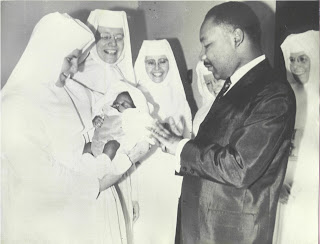Dear Friends,
Isaiah,
Paul and Peter.
These
three figures are prominent in today’s readings. They were people totally
caught up in their own day to day lives. They did not wish to be different or
to relate to God in another way. But each was surprised by God and ended up in
a new place spiritually and even physically.
Isaiah
was from Jerusalem, an aristocrat, married with children, a bright man, totally
absorbed in his life and times, a faithful believer who worshipped regularly in
the temple. He was also a reluctant prophet.
Today,
we hear how Isaiah had a vision, i.e. he
came to a new and compelling consciousness of God calling him to speak God’s
word to the people. By the end of the passage, when God says “Whom shall I
send? Who will go for us?”, Isaiah steps up. “Here I am. Send me!” Isaiah had moved from no apparent consciousness of a new
mission to an ardent commitment to speak God’s word.
Paul
was a whole-hearted Jew, who made tents for a living and a man who was hostile
to Christ and his followers. “I persecuted the church of God” he confesses in
today’s second reading. Yet Paul, in a moment of conversion, moved from hostility
to being one who claimed Jesus as his Lord.
Peter
was from a small town in Galilee, far from the places of power, married,
satisfied to be a skilled fisherman, self-reliant. Prone to put his foot in his
mouth.
On this
morning in the Gospel, he and his dejected partners washed empty nets. They had
fished all night and had caught nothing.
Jesus,
the non-fisherman, stood on the shore nearby and told Peter to go out again.”
Cast out into the deep.”
Peter
was called back to the same place he had failed and was asked to try again.
Daring to go back, Peter knew great success and realized it was not of his own
doing – an important step in coming to a new commitment to follow Christ.
In much
the same way as these three, you and I are absorbed in our everyday lives. In
our homes, families, work-world, we are sometimes reluctant to follow God’s
call, or hostile or so self- reliant that we don’t need God to tell us how
to fish. Yet each of us is called by God, touched by God, invited by God in a
unique way to be the embodiment of God and the bearer of Good News to our
world. “Why me?” we might ask. “Why not me?” Each of us called by God at some
point to go beyond where we are.
It
might be to a new place like Isaiah. We may have to give up long- held
convictions like Paul. We may have to return to a place we’ve been, like Peter,
only to be surprised by what God offers us there.
This is
real. This is true.
What will
it take for us to cast out into the deep, or to say “Here I am! Send me!”?
~Sister Joan Sobala







